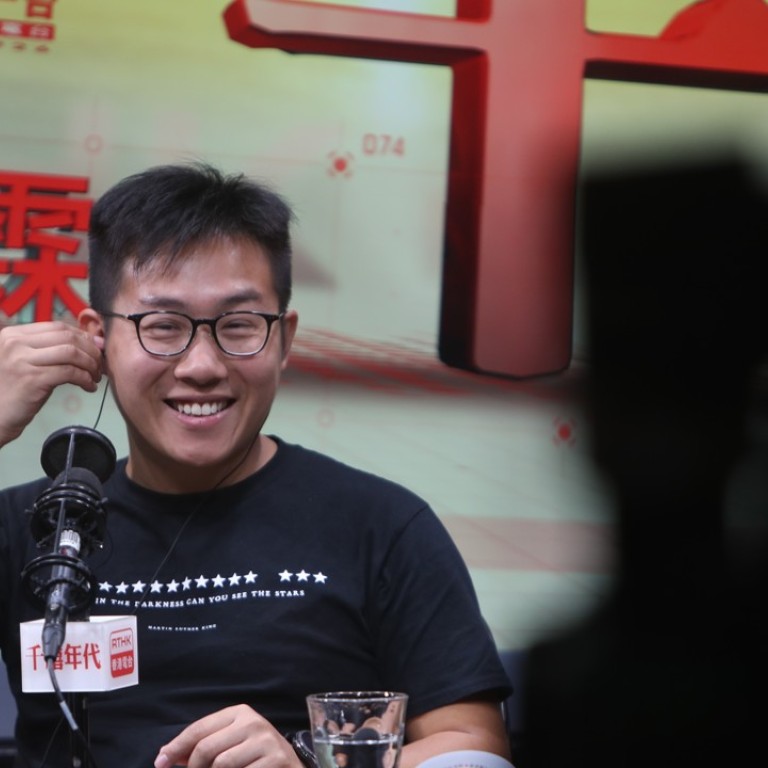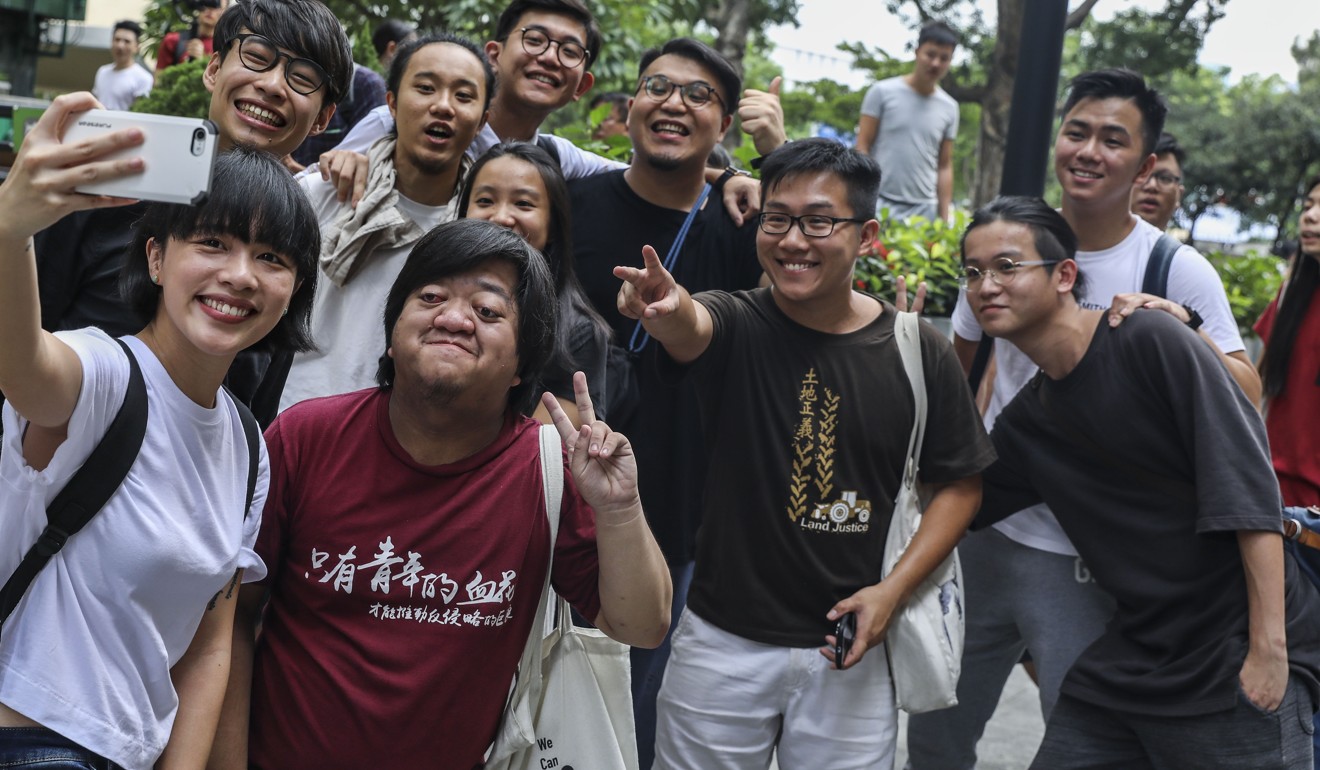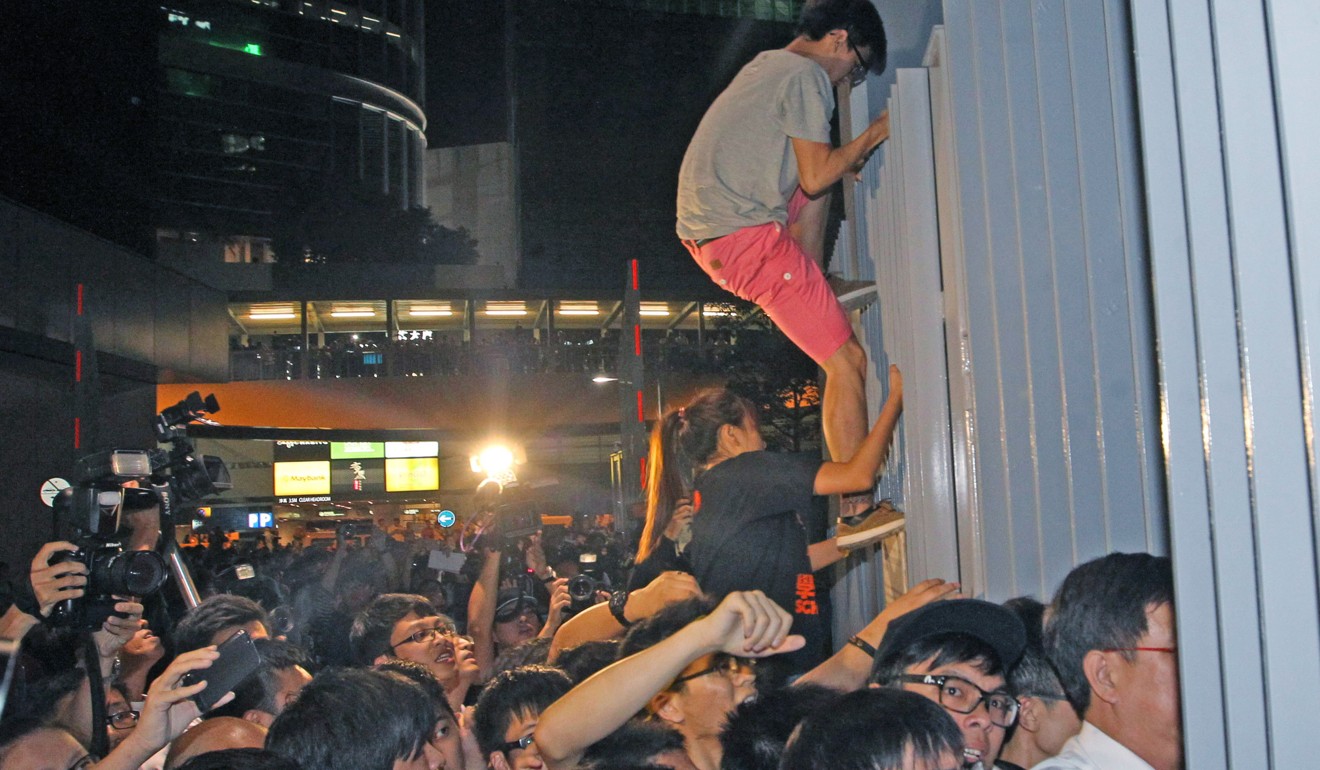
Protesters have to be more ‘organised and disciplined’ to avoid jail, Hong Kong pro-democracy activist Raphael Wong says
League of Social Democrats vice-chairman says with courts more willing to hand down tougher penalties, campaigners are forced to rethink ‘costs’
Protesters will need to be more “organised and disciplined” to avoid going to jail for campaigns against social injustices in Hong Kong, a pro-democracy activist said on Monday, after the city’s top court gave him and 12 others their freedom last week.
Activists freed by highest court on grounds they suffered a grave injustice
But the Court of Final Appeal on Friday overturned a lower appellate court’s decision last August to replace the group’s original community service orders with jail terms, even as it endorsed its new sentencing guidelines calling for stiffer punishments for violent unlawful assemblies.
The five appeal judges noted the June 13, 2014 Legco protest by the group of 13 did exhibit violence but questioned why the lower court, in applying the guidelines, used a 15-month jail term as their starting point for sentencing.

They said they would reveal full details of their ruling at a later date.
Let’s not forget I actually served 120 hours of community service, before being sent to jail. Was that not enough?
Raphael Wong said it was now clear to activists that the courts were ready to impose longer jail terms on those involved in large-scale, violent protests.
This would force protesters to rethink “the costs” involved in storming a site, he said on a radio programme.
“No one would want to end up in jail ... maybe [storming] would be a trump card saved for the end.”
During the June 13 incident some protesters were accused of using bamboo sticks and metal objects to pry open the door to the Legco complex. Damage to the complex cost more than HK$400,000, and an injured security guard needed 85 days of sick leave in the aftermath.

Wong, who served about 90 days of his sentence, maintained protesters never intended to harm anyone and were not violent, though he admitted they used “force”.
“All they tried to do was to force open the door,” he said.
He said another lesson learned from the episode was that different camps of activists should have better communication and not act on their own. “I really hope they will stay united and think through beforehand, and at least be responsible to comrades and themselves and let everyone know how far they will take something.”
Eight activists who stormed city’s legislature in housing protest granted bail
Raphael Wong also responded to Federation of Trade Unions chief Stanley Ng Chau-pei, who called the top court’s judges “sinners” for releasing the group of 13.
“Let’s not forget I actually served 120 hours of community service, before being sent to jail. Was that not enough?” he asked.
Alan Leong Ka-kit, a senior counsel and chairman of the pro-democratic Civic Party, also weighed in on the programme and suggested the courts look at the protesters’ motives when determining the degree of violence exhibited by them.
Those against the New Territories development plan were speaking up for affected villagers and their actions should be “distinguished from those who might impulsively express anger”, he said, quoting the original trial magistrate who had sentenced the group to community service.

